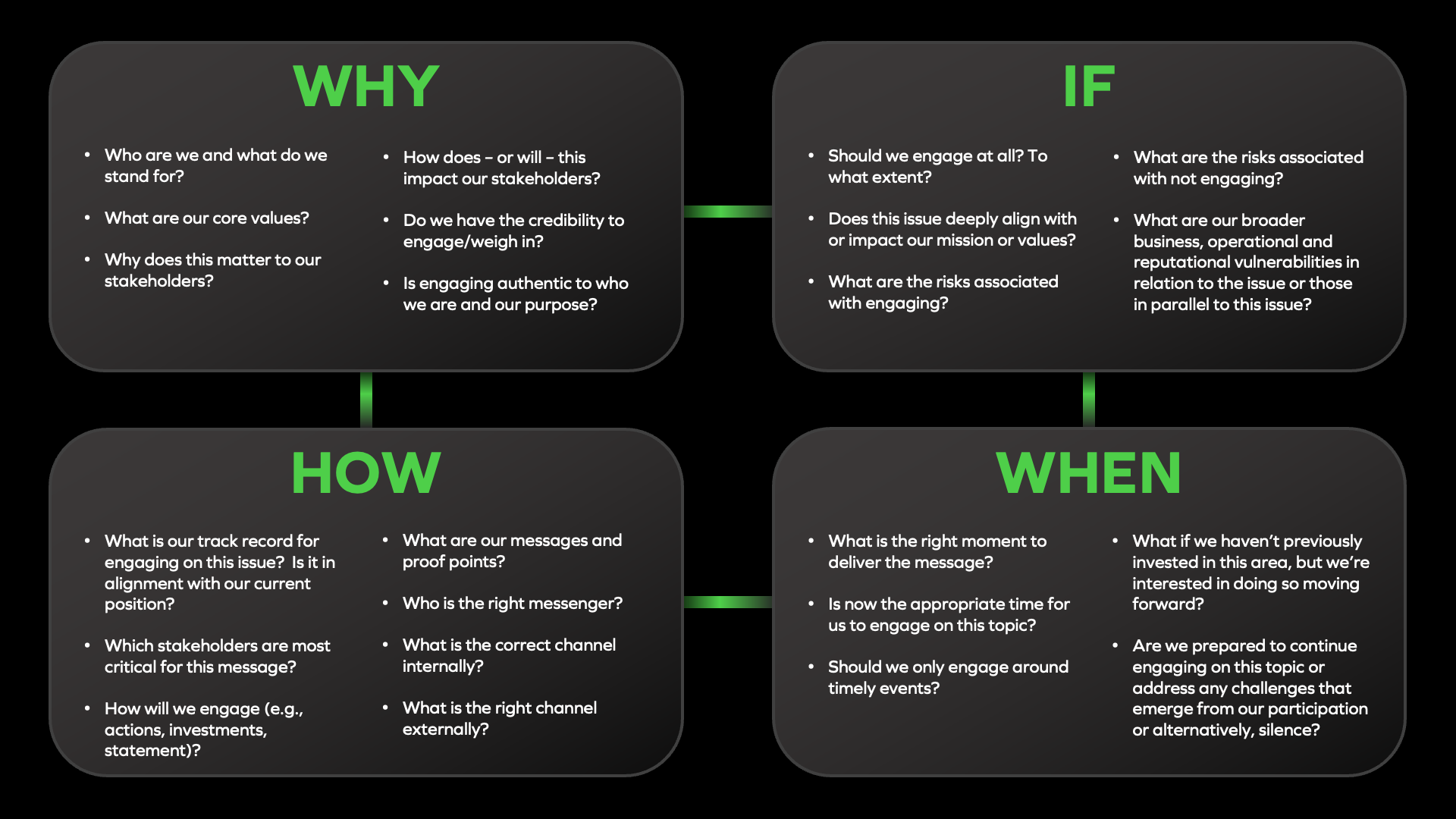Companies Can’t - And Shouldn’t – Be Everything to Everyone.
Brand crises are increasing in number and intensity. It’s not surprising considering companies are navigating arguably one of the most challenging reputational landscapes in history.
If there’s one thing we can learn from these moments, it’s that today’s issues are multifaceted and require rigor and purpose when taking a stance. And so should a company’s process for considering and evaluating if, how, when, and – most critically - why it engages on them.
There’s endless research indicating that stakeholders expect companies to have a point of view and take a stand on issues. However, we regularly witness companies weighing in on issues in some of the most inauthentic, opportunistic, or broad ways, and sometimes with no business doing so. It’s critical that companies not overlook the complexity of each issue and ensure that any and every level of engagement aligns with the company’s purpose, values, and stakeholder expectations. Those that neglect these considerations risk bearing the potential reputational and business consequences – from threats to employee safety and customer boycotts that negatively impact sales to even loss of stakeholder trust.
What Companies Should Consider Before Engaging
There is no singular approach to engaging on issues; such strategies must be unique to each organization. Companies that truly want to advance important issues can help mitigate risk by considering the following question framework when developing their strategy:

you might also like
Explore allNorth America
How Social Networks Becoming Asocial Impacts Communications Strategies
North America
Employee Engagement Matters Now More Than Ever: Internal Communications Function Can Lead the Way
North America
Awards & Rankings: Why Being on the List Matters for Your Company
North America
Companies Must Do Better: Learnings From Recent Layoff Announcements